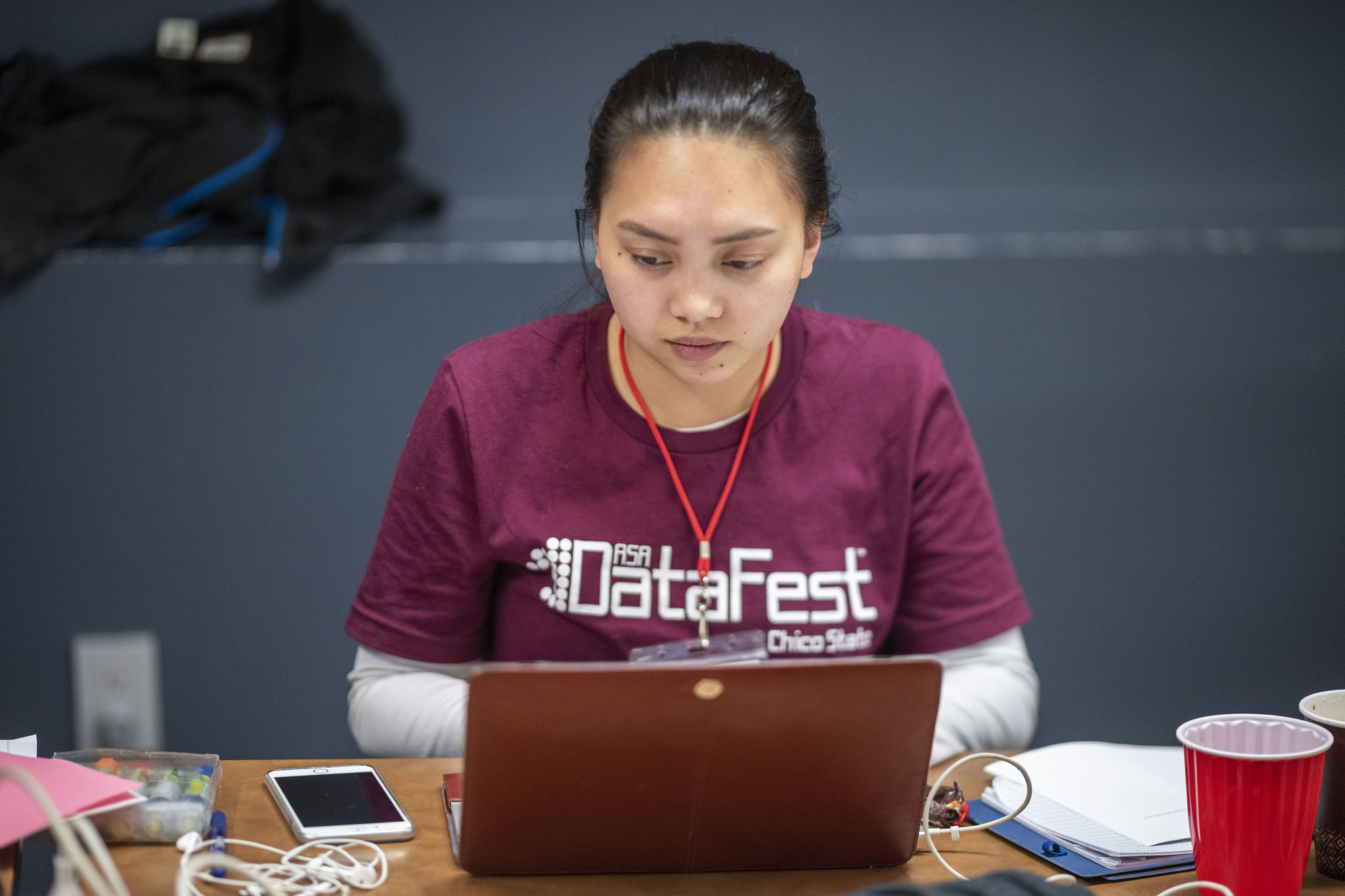The Masters in Data Science and Analytics (MSDSA) is a joint effort between the Department of Computer Science and the Department of Mathematics and Statistics. The program's blended curriculum provides relevant experience and applicable skills for the evolving and complex field of Data Science.
Masters in Data Science and Analytics



The MSDSA is a 34-unit program open to students with a Bachelor's degree and an interest in a programming approach to problem solving using data. With tracks in Applied Analytics (AA) and Machine Learning (ML), graduates will be able to seek a variety of data-centric careers in an application field of their choosing. Students are expected to choose one of the two tracks by the end of their first year.
- Track Descriptions
The core classes of the MSDSA program develops a strong interdisciplinary skillet to enhance either track selected.
The Applied Analytics (AA) track can be thought of as a breadth or applied track, where the focus is for students to collaborate closely with researchers or companies in a domain specific field. Students in this track could be employed in positions where they are the “data person” on a team. This track may appeal more to students from a broad range of majors and domain interests such as nutrition, agriculture, medicine, bioinformatics, journalism, political science and even the digital humanities.
The Machine Learning (ML) track provides deeper and more technical training on the mathematical and computational underpinnings of the statistical, machine learning and artificial intelligence models being used. This track may appeal to students with backgrounds in areas such as mathematics, statistics, or computer science. Leveraging their more technical backgrounds students in this track will learn how to develop, implement, and integrate algorithmic solutions using massive amounts of data based on artificial intelligence, machine learning, or statistical analysis methods.
- Admissions Requirements
Students who met the minimum admission criteria can be admitted as either classified or conditionally classified(opens in new window) standing depending on their pre-requisite knowledge or coursework.
Proficiency in the areas below is most often demonstrated through completion of prerequisite coursework with a C or better within the prior five years. A waiver of prerequisites may be available, subject to approval by the Graduate Coordinator.
Conditionally Classified Status- Introductory Statistics (MATH 105 or equivalent)
- Calculus I (MATH 109 or MATH 120 or equivalent)
Prerequisite courses taken for the purpose of advancement to classified status will not be used towards the MS degree.
Classified Status
Meeting these additional requirements will give students an advantage in both admission selection and their journey towards achieving the degree.
- Introductory Statistics (MATH 105 or equivalent)
- Calculus I (MATH 109 or MATH 120 or equivalent)
- Calculus II (MATH 121 or equivalent)
- Upper division Applied Statistics (MATH 315 or equivalent)
- Introductory level in both R (Math 130 or equivalent) and Python (MATH 131 or equivalent)
Students wishing to pursue the Machine Learning track must also meet the following requirements before formally declaring the ML track.
- Calculus III-Multivariable Calculus (MATH 220 or equivalent)
- Linear Algebra (MATH 235 or equivalent)
- Programming & Algorithms I (CSCI 111 or equivalent)
- Programming & Algorithms II- Advanced Object-Oriented Programming (CSCI 211 or equivalent)
Is the MSDSA program right for me?
Careers in Data Science and Data Analytics are in high demand and offer opportunities to work in diverse fields with strong compensation. You should consider the MSDSA program if you:
- Have a background in Statistics, Computer Science, Business Analytics, or other STEM fields
- Want to work in a rewarding career (and high compensation) that can have an impact
- Appreciate working on an interdisciplinary team using analytical methods to solve complex problems
- Enjoy continuing professional development to stay up to date with new technologies
- Hope to use your skills to make the world a better place by working in areas such as climate change, medical research, regenerative agriculture, rural planning and ethical AI
- Desire flexibility in your career area, such as the social, environmental, or business field that fits your interests
Career Paths for MSDSA Graduates
- Data Scientist
- Machine Learning Engineer
- Quantitative Research Analyst
- Bioinformatician
- Chief Data Officer
- Business Intelligence Analyst
- Clinical Data Manager
How do MSDSA students get involved?
- A core piece of the Applied Analytics track is an experiential learning/internship. Getting field experience working with clients is an embedded part of the degree!
- The Data Science Club allows students to collaborate with peers outside of a classroom setting to discuss related problems, current challenges, and stay informed of the field’s latest developments
